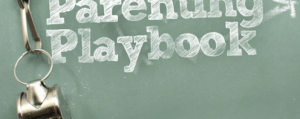 This is the title to one of my all-time favorite books. In it, Dr. Gordon Livingston, a noted Columbia, Maryland psychiatrist, reflects on life, love and the agonizing pain of losing two children within 13 months of one another, one to suicide and the other to childhood cancer. Being the father of six children myself, I cannot begin to imagine Livingston’s pain. Most notably for his admiring public, Livingston put his anguish to great use and created a wonderful book that I often recommend and refer to.
This is the title to one of my all-time favorite books. In it, Dr. Gordon Livingston, a noted Columbia, Maryland psychiatrist, reflects on life, love and the agonizing pain of losing two children within 13 months of one another, one to suicide and the other to childhood cancer. Being the father of six children myself, I cannot begin to imagine Livingston’s pain. Most notably for his admiring public, Livingston put his anguish to great use and created a wonderful book that I often recommend and refer to.
As a twice-divorced single father of six, I now realize that no one ever gave me the handbook to play perhaps the most important role of my life, that of being a dad. Almost anyone with a willing partner and a healthy sperm count can be a father, but being a dad is a completely different proposition. Honestly, married for the first time at 23, my wife and I never discussed how many children we would have, nor how we would raise them. With both of us coming from broken homes, this was definitely a conversation we should have had! But why would I expect to have that life-planning conversation when no one had it with me? My dad left when i was 10, and my mother was ill-equipped and too emotionally fragile to have “the talk” (or any talk) with me about my own family. My first two boys were born just eleven months apart — Irish Twins, I believe that’s called! After the second, we took a six-year break before having our third child and then waited another two years before having Number Four. Unbeknownst to me, my marriage was already on shaky ground, but since this is not a story about divorce, I’ll skip all the sordid details (it does make good reading, though).
My point here is: how many, if any, of us were given the parenting playbook? After all, we have guides for everything imaginable; there must be a “Dummy” series for anything you want to do or be. And yet, no one gives us tools for life’s most important job. When my first marriage ended, my second-oldest child, twelve at the time, decided he wanted to live with me full-time. He’s now 26 and different in many ways than his siblings, all of whom lived full-time with their mother. Is the difference a result of nature-versus-nurture? My ex insists that our son would be the same if he had been raised by a tribe of monkeys (her exact words, in fact). I perceive that as an unwillingness to give me any credit for being a good father.
However, as I reflect back at age 52 and watch my children mature, the differences are notable. Falling on my sword, as I hope to always do, I made my share of mistakes, and of course I have regrets. There are many things I might have done differently, but in a divorce, you are merely one side of a complicated, contentious equation. I did what I thought was best at the time, with no playbook, only my own nature-versus-nurture baggage.
It’s impossible to turn back the hands of time; the dye has been cast, and the ship has sailed. All I can do now is learn from my own mistakes, model positive behavior for my children, and talk the talk, the talk I never got. Maybe if families don’t create their own playbook, the world should, and often does, create its own. Perhaps I should take solace in the fact that while I am too soon old and too late smart, I have learned immensely along the way and will hopefully have many more years to lead by example.
To your success as a parent!
